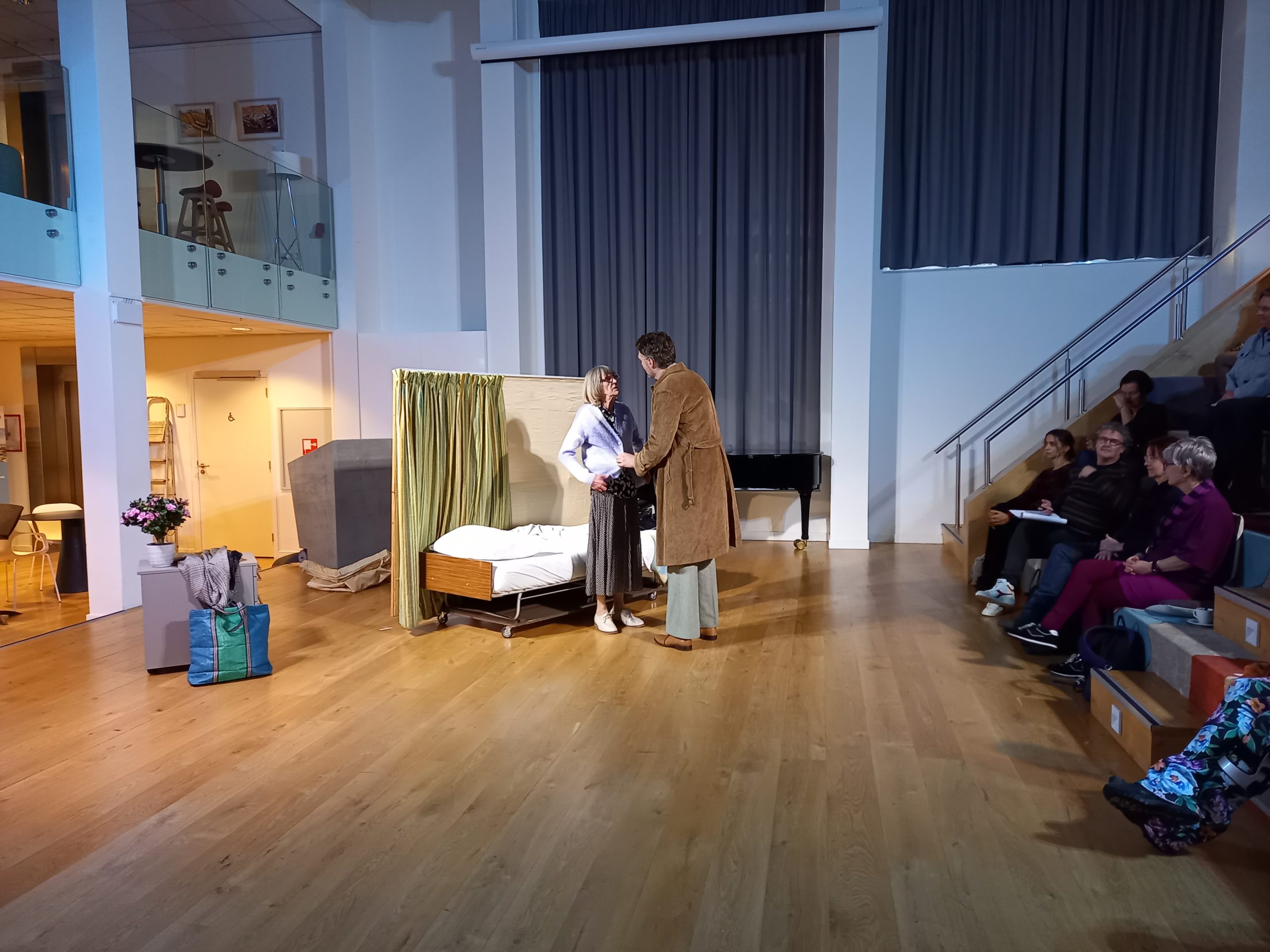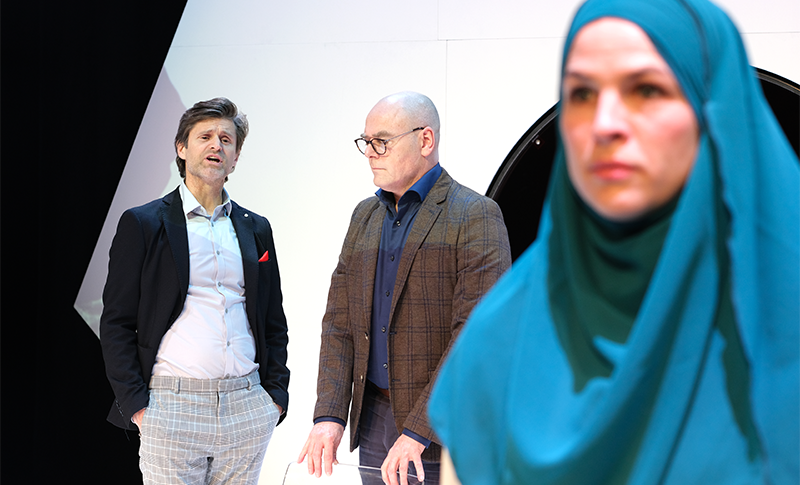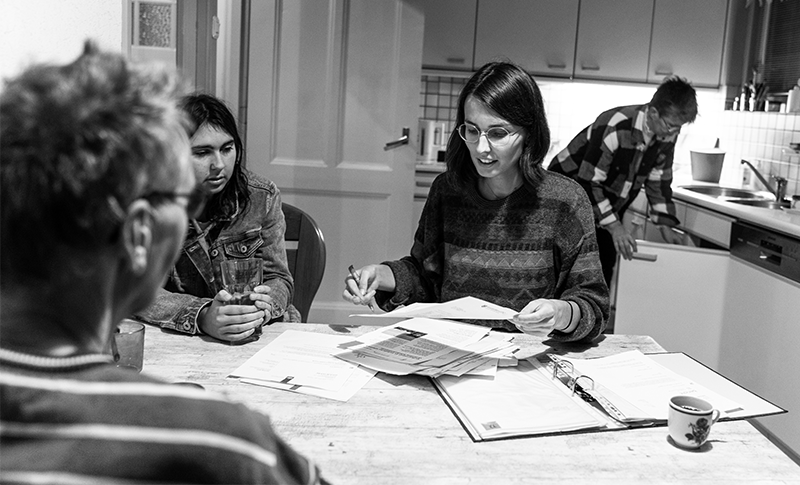How do you maintain a healthy equilibrium between caregiving and your work or studies? WUR opened the dialogue through the play My Mother. The play was performed in impulse, one day ahead of national informal caregiving day.
The Wagenings Werktheater painted a picture of the life of an elderly woman who has dementia and whose son visits every Sunday. With a smile and sadness, the audience saw the elderly woman deteriorate and witnessed her son trying to cope. ‘We aim to offer a window into the mother’s head and touch the audience’, says director Cor Meurs. WUR, too, aims to impact humans, says Fenny de Lange of the informal care counter. ‘We aim to show what issues you may encounter in informal caregiving, and in doing so, we recognise students and employees who are caregivers to someone in their environment.’ The Informal Caregivers’ Day on 10 November forms an excellent opportunity to do so, says De Lange. ‘We seize the opportunity to inform people about the support we are happy to offer. Much needed support, because one in every ten caregivers is overstretched.’
Familiar
A significant portion of the audience is an informal caregiver employed at WUR. Gerdien Kouwenhoven-Vermeer, for example. She is an assistant researcher at Cultivation and Crops and cares for her father, who has dementia. After the performance, she says: ‘Ik was very familiar: dementia, the altered roles and the memory loss, and caregiving, such as bringing meals and fixed visiting days.’
There are many support options for caregivers, but you must talk about it
Director Cor Meurs
After the performance, the audience discusses over drinks. Cor is delighted that the play helps people open up: ‘I hear people discussing how we shape health care and how we treat caregivers.’ Still, participants mainly discuss their personal experiences, and that is what Cor values. ‘There are many support options for caregivers, but you must talk about it.’
Recognition
The Caregiving and WUR discussion board also helps open a discussion. This picture was revealed by HR director Martijn Scheen after the performance. Scheen: ‘We strive to help employees find the correct balance between caregiving and work. Unfortunately, many employees do not know what support WUR can offer them. The discussion picture is designed to help them.’
Gerdien has found her way. My team supervisor is always ready to offer me a listening ear, understanding and recognition. He referred me to the informal care counter, who, in turn, referred me to a caregivers’ coach. His advice helps me persevere.’
The discussion board is available on the Intranet.
Tips
How can you find an equilibrium between work or studies and caregiving? Discussing your situation is the first step. Share your concerns, gain understanding or find solutions together. With your supervisor, study advisor or dean, you can discuss how WUR can support you. Or, reach out to the occupational social worker, HR, the company physician, your general practitioner or (student)psychologist. Do you find it hard to talk about your personal situation? In addition to the discussion board, Fenny de Lange or Erica Steen of WUR’s care counter can provide you with information or refer you to a certified caregiver’s confidential counsellor. They can also give you tips or refer you to national or regional support centres such asMantelzorgNL, Mantelzorgelijk or the Mantelzorgcentrum.

 Photo Milou van der Horst.
Photo Milou van der Horst. 

